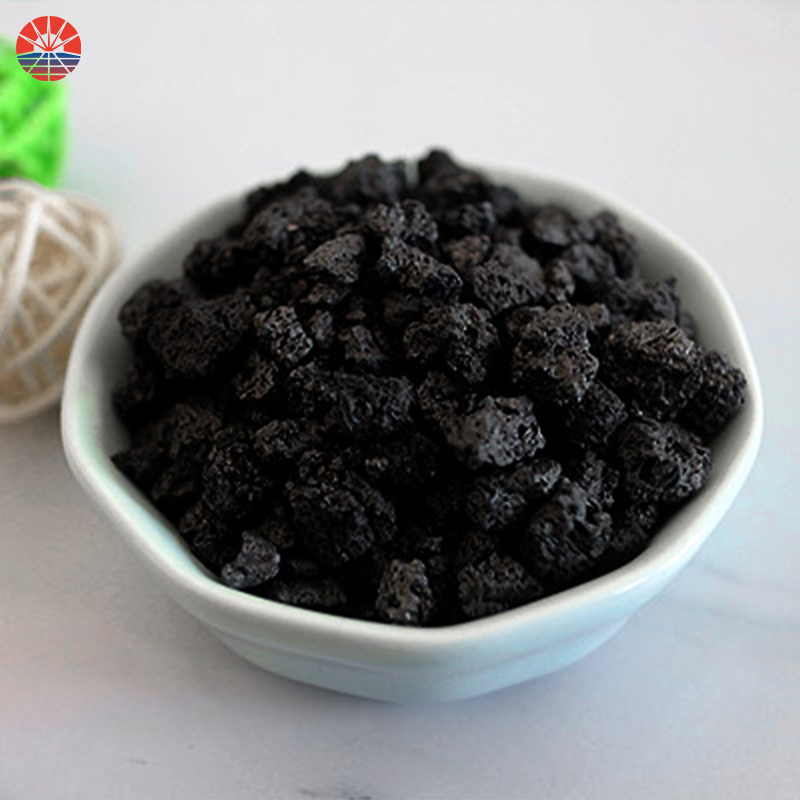China Steelmaking Graphitized Petroleum Coke Manufacturers
Graphitized petroleum coke (GPC) has several advantages when used in steel production, especially as a carbon additive in electric arc furnaces (EAFs) and ladle furnaces. Here are some of the key advantages:
High Carbon Content: GPC typically has a high carbon content, usually above 98%. This high carbon content makes it an excellent carbon additive in steel production. Carbon is essential for the reduction of iron oxides in the EAF, allowing for efficient steelmaking.
Consistent Quality: Graphitized petroleum coke is manufactured with strict quality control measures, resulting in a product with consistent and uniform properties. This consistency is crucial for maintaining stable and predictable steel production processes.
Superior Electrical Conductivity: GPC has excellent electrical conductivity, making it an ideal material for use as an electrode in electric arc furnaces. The high electrical conductivity ensures efficient energy transfer to generate the high temperatures needed for melting scrap metal and producing steel.
Low Impurity Levels: GPC is processed to have low impurity levels, particularly in terms of sulfur and metals. Low sulfur content is essential as it helps to minimize harmful emissions during steelmaking. Low metal content is also crucial to avoid any undesirable alloying effects.
Low Thermal Expansion: GPC has a low coefficient of thermal expansion, which means it is less likely to crack or deform under the extreme temperature fluctuations experienced during steel production in the EAF.
High Oxidation Resistance: Graphitized petroleum coke exhibits high resistance to oxidation at elevated temperatures, allowing it to maintain its structure and integrity during the steelmaking process.
Cost-Effectiveness: GPC is generally more cost-effective compared to other carbon additives due to its availability and favorable pricing compared to natural graphite or synthetic graphite.
Reduced Slag Formation: The use of graphitized petroleum coke can help reduce slag formation during steel production. This benefit is particularly important as excessive slag can negatively impact the efficiency of the steelmaking process.
Improved Productivity: GPC's high carbon content and excellent electrical conductivity contribute to improved energy efficiency and higher productivity in the EAF, as it enables faster and more efficient melting of scrap metal.
Environmentally Friendly: As a byproduct of the oil refining process, using graphitized petroleum coke in steel production helps recycle this material and reduces waste. Additionally, its low sulfur content helps decrease harmful emissions, making the steelmaking process more environmentally friendly.
In conclusion, graphitized petroleum coke offers numerous advantages in steel production, including high carbon content, consistent quality, excellent electrical conductivity, low impurity levels, low thermal expansion, oxidation resistance, cost-effectiveness, and environmental benefits. These advantages make GPC a preferred carbon additive for improving the efficiency and quality of steelmaking processes.
Usage to use Graphitized petroleum coke in steel
Graphitized petroleum coke (GPC) is widely used in the steel industry for various applications. Some of the primary usages of GPC in steel production include:
Carbon Additive in Electric Arc Furnace (EAF): GPC is used as a carbon additive in the EAF steelmaking process. It is added to the steel melt to increase the carbon content, which is essential for achieving the desired steel grade and properties. GPC's high carbon content and excellent electrical conductivity make it an ideal carbon source for this purpose.
Carbon Electrode Production: GPC is a key raw material in the production of carbon electrodes used in EAFs. These electrodes are essential for transferring electrical energy to the steel bath, enabling the melting and refining of steel in the EAF process.
Ladle Furnace Covering Agent: In the ladle refining process, GPC can be used as a covering agent on top of the steel melt in the ladle. This helps reduce heat loss, prevent re-oxidation, and maintain the desired steel temperature and chemistry during ladle treatment.
Carburizing Agent in Foundry and Cast Iron Production: GPC can be used as a carburizing agent in foundry and cast iron production. It is added to molten metal to increase the carbon content and improve the mechanical properties of cast iron.
Inoculant for Ductile Iron Production: GPC can serve as an inoculant in the production of ductile iron. It helps promote the formation of graphite nodules, which enhances the ductility and mechanical properties of the iron.
Alloying Agent in Steel Production: GPC can be used as an alloying agent to introduce specific elements into the steel melt. It is often mixed with other alloying materials to achieve precise steel compositions and properties.
Carbon Raiser in Steel Foundries: GPC is used as a carbon raiser in steel foundries to adjust the carbon content of steel alloys during the casting process.
Synthetic Graphite Production: GPC is a primary raw material for producing synthetic graphite, which has various applications, including in the steel industry as a lubricant and conductive material.
It is important to note that the specific usage and application of GPC in the steel industry may vary depending on the steelmaking process, the desired steel grade, and the requirements of the final steel product. GPC's high carbon content, electrical conductivity, and low impurity levels make it a valuable material for improving steel quality and process efficiency.












